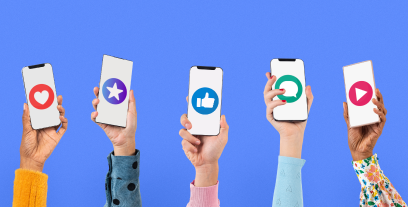In today’s digital age, social media and the technology that keeps us constantly connected influence every aspect of our lives. This constant connectivity can sometimes lead to negative emotions. One of these is “FOMO,” or the “Fear of Missing Out.” FOMO is the anxiety of missing out on something and is often triggered by seeing others’ posts on social media that portray a more fun, successful, and active life.
So, what exactly is FOMO, and how does this feeling affect our lives? Let’s explore together.
FOMO stands for “Fear of Missing Out.” It refers to the anxiety people feel when they believe others are experiencing exciting, successful, or fulfilling moments that they themselves are missing. Seeing how vibrant and active others’ lives appear on social media can make individuals feel inadequate or dissatisfied with their own lives. This feeling often leads to internal worry, unhappiness, and lowered self-confidence. The effect of FOMO can cause a constant fear of missing out on what others are doing.
FOMO fundamentally stems from the human need for social interaction and acceptance. When people begin to feel different or excluded from their communities, the fear of missing out arises. From an evolutionary psychology perspective, this can be explained as a survival strategy—historically, being part of a group increased one’s chances of survival.
With the rise of social media, these instinctual behaviors have become more pronounced today, as individuals constantly compare themselves to others and seek social belonging through digital platforms.

Social media is one of the biggest triggers of FOMO. Platforms like Instagram, Facebook, and TikTok are filled with content showing others’ travels, events they attend, and daily lives, which can make individuals feel inadequate or left out. Although many of these posts capture just a fleeting moment, we often perceive them as a complete lifestyle. Constantly comparing ourselves to these curated snapshots can lead to the emergence of FOMO.
FOMO doesn’t just impact social life; it can also complicate work and professional environments. In the workplace, the fear of missing out on opportunities may create a pressure to respond immediately to projects or job offers. However, this often leads to hasty decisions and impairs the ability to think clearly.
On a personal level, FOMO can harm relationships, mental health, and overall life satisfaction. Constantly seeing others live “better” lives can increase feelings of depression, anxiety disorders, and loneliness. Understanding these effects is crucial for managing FOMO and maintaining a balanced, healthy lifestyle.

There are several strategies to cope with FOMO. The first is to limit social media use. When you find yourself constantly lost in social media, taking a break by setting your devices aside for a while can be very refreshing.
It is also important to avoid comparing yourself to others. Everyone’s life progresses at a different pace and in different ways, so comparing yourself to others’ successes only harms your own well-being.
The first step in managing FOMO is to identify your own values and life goals. Instead of constantly watching others’ lives, focusing on your own path can bring greater satisfaction and peace.
Practices such as meditation and mindfulness can be very effective in reducing the anxiety caused by FOMO. Additionally, building positive social relationships and engaging in hobbies that bring you joy can help you distance yourself from the influence of social media and external pressures.
You may be interested in: Stress Reduction Techniques for Those Looking to Feel Better
FOMO is not entirely negative. When managed properly, it can offer opportunities to gain new experiences, explore, and grow. For example, FOMO can make you more social, open-minded, and courageous. The goal is, when you experience this feeling, to better understand yourself and use it as a tool for personal development.
.png)
Here are some effective suggestions you can apply to manage FOMO:
Recommended For You
5 Exercise Tips for People Who...
Spending long hours working at...
Read MoreWhat Is the Mediterranean Diet...
The Mediterranean diet is a ty...
Read More10 Foods That Will Help Reliev...
During the spring months, many...
Read More